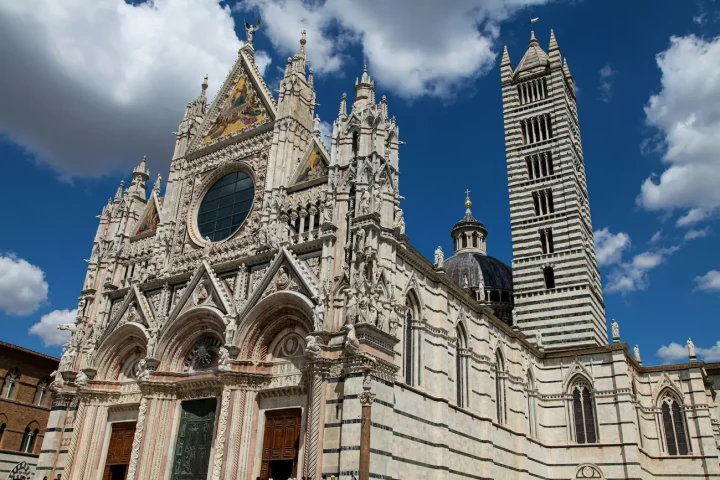Deep personal connection
Obtaining Italian citizenship by ancestry is more than a bureaucratic process; it is a profound journey of reconnecting with your heritage. This journey allows individuals to honor the stories and struggles of their ancestors, transforming the process into a deeply personal and emotional experience. Reclaiming their Italian roots gives many a renewed sense of identity and belonging.
io.citizen has many examples of individuals who found such profound connections. For instance, João Silva, a former client of io.citizen, shared with us how he now truly feels like an Italian citizen. He discovered his twin sister through genealogical research, a revelation that profoundly impacted his life. To this day, he keeps her birth certificate.
Another io.citizen’s former client, Mariana Emboava, described her pride in becoming an Italian citizen and how fancy it is!
For many, the quest for Italian citizenship is a way to pay tribute to their ancestors. It acknowledges the sacrifices and challenges faced by previous generations. This connection to the past can be incredibly powerful, providing a sense of continuity and purpose.
The journey of personal and family discovery
Genealogical research
Embarking on the journey to obtain Italian citizenship often begins with genealogical research. This involves delving into family records, uncovering old documents, and piecing together ancestors’ stories. This journey can lead to discovering the towns and villages where your ancestors thrived for years. In addition, visiting these places can become a transformative experience, bringing history to life in a tangible way.
Italian genealogy: the journey to reconstruct your Italian family tree.
Connecting with Local Communities
In addition to exploring personal family history, connecting with local Italian communities can provide valuable resources and support. Many Italian associations and groups offer assistance in tracing family roots and understanding the broader historical context. These communities can also provide a sense of belonging and connection, helping individuals feel more integrated into their Italian heritage.
Challenges of bloodline and creative solutions
Common challenges of Italian citizenship by ancestry
The path to obtaining Italian citizenship has its challenges. Many individuals encounter complex family histories, such as surname changes, lost documents, or incomplete records. These obstacles can be both practical and emotional, as they often involve untangling intricate family narratives and confronting forgotten or hidden aspects of one’s heritage.
How to acquire Italian Citizenship?
Innovative solutions
Despite these challenges, there are creative solutions to overcome them. Interviewing older family members can provide invaluable insights and stories that may not be documented elsewhere.
Visiting historical archives in Italy can uncover lost or forgotten records. Additionally, modern technologies, such as DNA testing, can help confirm familial connections and provide a clearer picture of one’s ancestry.
The impact of citizenship in modern life
Obtaining Italian citizenship has far-reaching implications. It opens up a world of opportunities, from professional prospects to cultural enrichment. For many, it means the ability to live, work, and study in Italy and other European Union countries. However, it also fosters a deeper connection to Italian culture, traditions, and society, enriching one’s life in countless ways.
Learn about the details of having Italian dual citizenship.
Additionally, The benefits of Italian citizenship extend to future generations. Passing on this heritage to children and grandchildren ensures a strong connection to Italian roots. Maintaining this link to your ancestry in a globalized world can provide a sense of identity and continuity, helping future generations understand and appreciate their heritage.
The intangible privileges of citizenship
Italian citizenship by ancestry also provides a gateway to experiencing Italian culture in a more authentic way. Learning the Italian language, cooking traditional dishes, and participating in local festivities become more meaningful when you feel a genuine connection to the culture. This immersion in Italian life enriches your understanding and appreciation of their heritage.
Obtaining Italian citizenship is also about building a legacy. It is an opportunity to create a living bridge between the past, present, and future. This legacy goes beyond legal rights, encompassing the values, traditions, and stories that define a family’s history. By embracing this heritage, individuals can ensure that their family’s legacy is preserved and celebrated for generations to come.
A step beyond the process: a commitment to roots
The journey to obtaining Italian citizenship is a unique and enriching experience. It invites us to dive deep into one’s family history, uncovering stories and connections that shape our understanding of who we are. Rather than viewing the process as merely a series of bureaucratic steps, it should be seen as a path to reclaim and celebrate one’s Italian origins. Embrace this journey, and let it be a testament to the enduring power of heritage and identity. It is a chance to honor the past, enrich the present, and build a legacy for the future.
Take advantage of specialized assistance to secure your passport for a borderless future.






